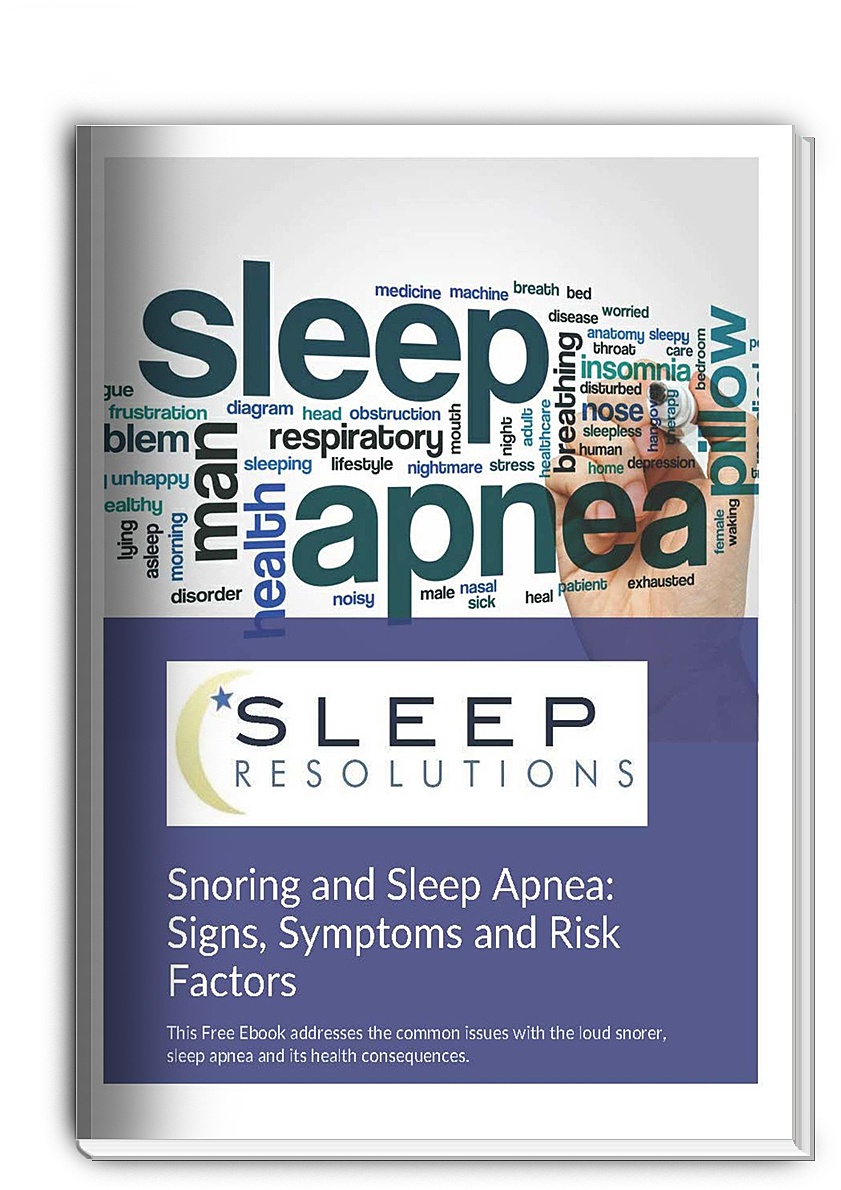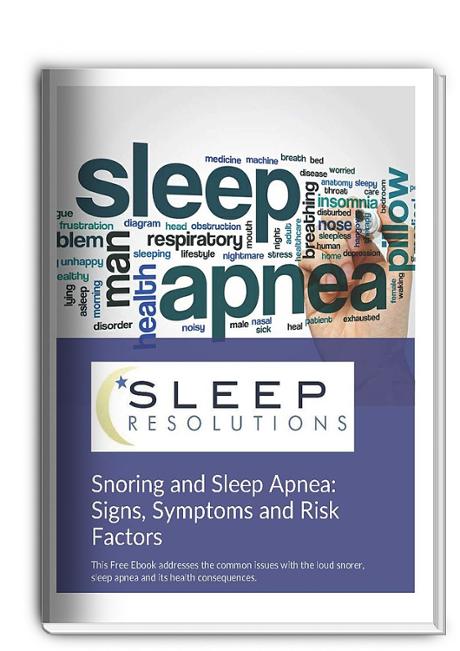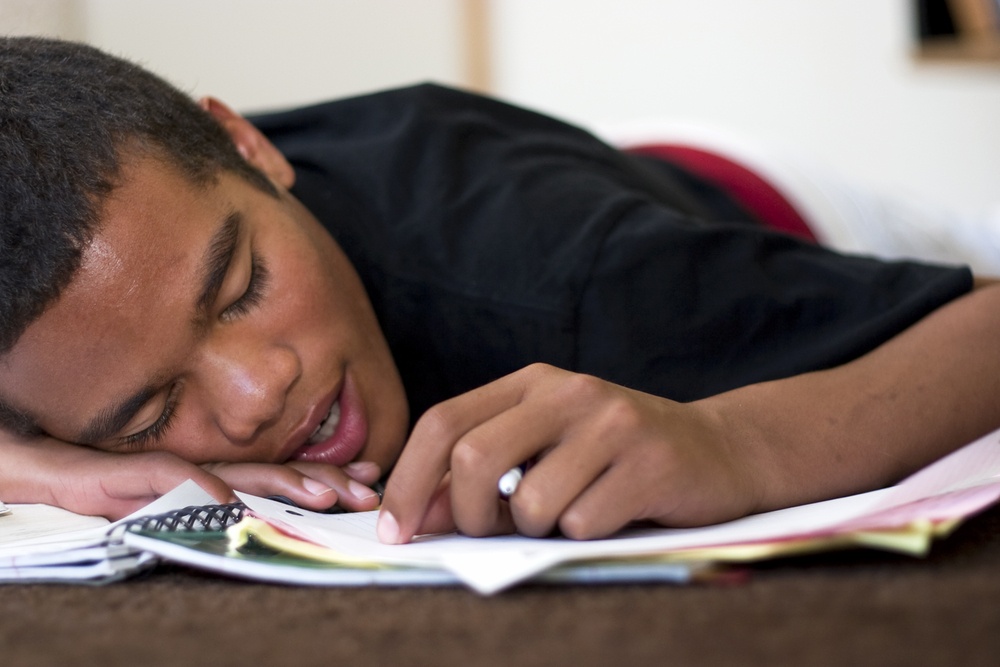
As we head into Mother's Day weekend, it's worth considering what may be the perfect gift to give any mother—
the gift of uninterrupted sleep.
Earlier this year, the Centers for Disease Control (CDC) published a report on the widespread problem of sleep deprivation in the United States.
Topping the list of the most sleep deprived among us? Not night shift police officers or commercial truck drivers or nurses, but single mothers.
Nearly 45 percent of all single moms of kids under the age of 18 are not getting the bare minimum of sleep necessary to function, day after day.
More than half of them also reported they did not feel well rested at least 4 days a week.
The problem doesn't end with single parenthood, though. Mothers in "nuclear" households also have sleeplessness statistics that measure just shy of their single-mom counterparts.
The CDC demands that we address sleep deprivation as a national health priority. Maybe the first people to get some help should be mothers.
What is sleep deprivation?
Sleep deprivation is also called insufficient sleep, short sleep, or chronic sleep loss. It results when you don't get a regular amount of quality asleep every night. Lost sleep, from one night to the next, creates an accumulation of sleep loss known as sleep debt. (How much sleep do you need?)
Excessive daytime sleepiness is the key symptom of sleep deprivation, but other meaningful symptoms include depressed mood, memory issues, deficits in judgment, and problems with focus and concentration. Physical and mental performance is measurably influenced by lack of sleep and, over the long haul, can lead to chronic health problems.
Sleep deprivation and moms
Causes of sleep deprivation
Insufficient sl
eep. Basically, you aren't getting enough sleep. It could be because of family-related interruptions, or bad bedtime habits, or disruptions caused by the demands of being a working mom. Parenthood supplies more than enough reasons to lose sleep.
Anxiety. Whether it's worries about balancing work and family, making sure the bills are paid, dealing with toxic relationships, coping with aging parents, or concerns about the health and well being of your own children, anxiety is sure to disrupt your sleep.
Insomnia. You struggle to fall asleep. You wake up constantly all night. You wake up too early and can't fall back to sleep. Or you may feel like you never get enough deep, restorative sleep.
Other hidden sleep disorders. Women may develop snoring or obstructive sleep apnea during pregnancy, which may or may not go away in the postpartum period.They may also develop upper airway resistance syndrome, a mild but obtrusive sleep-breathing problem which can fragment sleep all night long.Restless legs are common problems in women that often (though not always) relate to nutritional imbalances.
Hidden health conditions. Motherhood can bring a host of health problems that a woman may have never experienced prior to pregnancy, such as insulin resistance, hypertension, weight gain, immune system dysfunction, digestive problems, mood disorders, spine misalignment, and so on.Also, in the postpartum phase, body systems are transitioning away from pregnancy mode, which means hormones are shifting, leading to sleeplessness.Medication side effects. Some drugs make you sleepy, while others rev you up.
The effects of sleep deprivation
Once you fall into patterns of sleep deprivation, it becomes harder to "catch up" on lost sleep.
But you need to do everything you can to reclaim your sleep.
Why? In the long term, sleep deprivation has been linked with:
- diabetes
- obesity
- cardiovascular disease
- depression and suicidal behavior
- Alzheimer's, dementia, and cognitive decline
- substance abuse
- stroke
- cancer
- ulcerative colitis
Sleep deprivation, moms, and drowsy driving
Mark Rosekind of the National Transportation Safety Board makes this startling argument for defending against sleep deprivation:
“Every aspect of who you are as a human, every capability is degraded, impaired, when you lose sleep. What does that mean? Your decision-making, reaction time, situational awareness, memory, communication... go down by 20 to 50 percent.”
Sleep-deprived parents may not be aware that their lack of sleep could be compromising their ability to make decisions or be responsive, discerning, and vigilant... critical skills for keeping our kids safe and functional.
Guess what the top cause of "high severity" motor vehicle crashes is? It's not drunk driving. It's fatigue.
Drowsy driving can happen to a sleepy parent at any time, often with their precious cargo tucked into car seats in the back of the van.
But what about dads?
Men who are the primary caregivers of their children are equally sleep deprived and working dad are likely to have the same sleep deprivation challenges as their female counterparts. All the information in this article can be related to the experiences of dads who are taking on the challenges of childcare, whether they stay home and do the work 24-7 or balance the demands as single dads working and caring for their families.
How to prevent sleep deprivation: tips
Most soon-to-be moms resign themselves to a reality of sleep deprivation following the birth of their first baby and wear their sleep loss as a kind of valor. What they don't realize is that sleep deprivation may not end once junior is sleeping through the night.
Sick grade-school kids, teenagers with new driver's licenses, and the loss of their grandparents are just a few examples of the milestones of life that can leave you sleep deprived. It's time to acknowledge that sleep matters, not only to your health and well being, but to your family's, as well.
Here are some tips for reclaiming sleep, avoiding sleep deprivation, and reducing one's personal sleep debt:
The 9-to-5
-
Look into flexible scheduling at work. Changing the time that you start (or leave) work may better suit your natural sleep-wake rhythms.
-
If you can work from home, ask about getting rid of an unnecessary commute. You may become more productive and find the schedule less stressful.
-
Some companies have incorporated a "napping room" for employees who need some shut-eye at work. Take advantage!
-
It's now common for people to opt for part-time work over full-time work in order to protect their sleep schedules.
Family values
-
Nap when your baby naps. The dishes and the laundry can wait.
-
If you feel overwhelmed by housework, hire a housekeeper so you can get the sleep you need.
-
Get help from other friends and family members if you have a child with chronic night-time problems. Moms with children who struggle with sleep are destined to a lifetime of sleep deprivation. It's okay to call in reinforcements.
-
The "no screen" rule for kids before bedtime should be applied to you as well. All that exposure to blue spectrum light from backlit electronic devices wreaks havoc on your circadian system and guarantees you will struggle to fall asleep.
-
Ask for "time off" from being a mom to take a short "sleep vacation." It might mean hiring a sitter (or a doula, for a newborn), asking a spouse to step in, or leaving your kids with a favorite friend of family member.
"Me" time
-
Practice relaxation at night to help transition to sleep more easily. Breathing techniques can be helpful not only for you, but for your kids as well.
-
Make sleep hygiene a priority. Start with your sleeping space: is it conducive for sleeping? Think comfort, darkness, silence. Avoid using alcohol or drugs to "enhance" sleep; mostly, these rob you of the most important sleep stages (REM sleep and deep stage 3 sleep).
-
Exercise regularly. You don't have to be a gym rat. Even daily walks can improve your sleep. Do whatever exercise you enjoy. Find exercise classes where childcare is offered. Play sports with your kids.
-
Watch what you eat (and drink). We all like our morning coffee, but when it becomes a high-fat afternoon grande mocha latté, we need to rethink that choice. Eating healthy food in appropriate portions is important to sleep health. Fatty, high-sugar, caloric diets make us sleepy during the day and disrupt sleep at night.
-
Dispose of bad habits. Stop smoking; it has a negative impact not only on sleep but on the way you breathe as you sleep. Another big-time bad habit: sitting all day long without moving or stretching. With little babies in the house or kids off to school, a stay-home mom may understandably crave stillness. But sedentary living is not going to help you sleep better.
When you are already sleep deprived
So you have given your sleep life the most valiant of efforts, and yet you are still struggling with sleep loss.
Parenthood does not make it easy to get adequate sleep, so don't be too hard on yourself. Here are three things to consider:
-
Sleep deprivation for weeks, months, even years in a row consolidates to create sleep debt. Sleep debt is extremely difficult to "pay down" without a concerted effort, which from a practical standpoint may be virtually impossible to do while your kids are still young.
But accumulated sleep debt may be the driving force behind any physical or mental health problems you may have, and ignoring it won't make anything better, but worse.
-
Any chance you can reclaim a few hours of lost sleep, take advantage! Don't think that because you are sleep deprived, you will never catch up. Keep trying! Whatever you do, don't resign yourself to igetting sleep again.
-
Many causes for sleep deprivation are not the direct result of parenting. What's more, if they can be identified and diagnosed, they can be treated.
Please see a doctor if, after trying to improve sleep hygiene and adding more sleep opportunities into your days and nights, you still cannot get the sleep you need. There is no shame in getting help for sleeplessness; it does not make you a lesser parent to address sleep health problems, but a better one.
A s Mother's Day rolls around, think about one crucial resource that all mother's need: sleep.
s Mother's Day rolls around, think about one crucial resource that all mother's need: sleep.
To families: Let Mom sleep in. Let her go to bed early, too, if she wants. And think about finding more ways to preserve her chances for a good night's sleep throughout the year.
To moms: If you're offered the opportunity to sleep in as a Mother's Day gift, go for it! But make sure that your family, if they have plans to bring you breakfast in bed, waits until you are awake... without an alarm or any reason to rise until you are rested up.
Happy Mother's Day, America!
Sources:
Centers for Disease Control (CDC)
Medical Daily
National Sleep Foundation
"Sleep Disorders and Sleep Deprivation: An Unmet Public Health Problem." Colten HR, Altevogt BM, editors. 2006.
The Washington Post

















Leave a comment